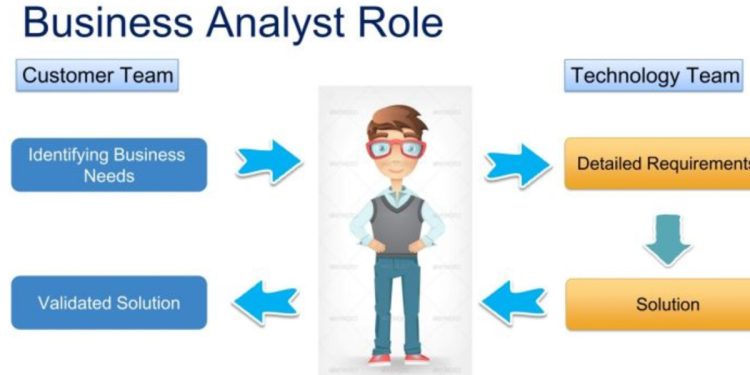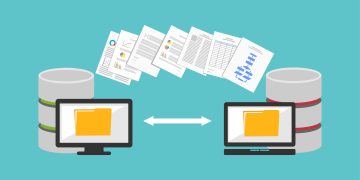Business organizations are relying on data sets to make critical business decisions like development of a new product, market penetration, new investments, customer segmentation and targeting, etc. These datasets help businesses in addressing various business problems and also analyzing its efficiency. As a result, the importance of a data analyst has increased manifold for an organization’s success.
These professionals are in high demand as they have the knowledge and skills to turn raw data into useful information, which can help them to make a better business decision. According to the reports by India Today, there will be more than 11 million job openings for professionals with data skills by 2026 in India alone.
Since they are highly valued, professionals also get to earn a really lucrative Data Analyst Salary. Fresh engineering graduates are understanding the demand in this field today thus enrolling themselves in various masters degree programs in data analytics to become eligible to enter this field.
In this article we discuss what makes this role so special with a focus on the salary aspect, and also try to understand the various roles and responsibilities of a Data Analyst.
<iframe width=”560″ height=”315″ src=”https://www.youtube.com/watch?v=D15DwYqpJ3o” title=”YouTube video player” frameborder=”0″ allow=”accelerometer; autoplay; clipboard-write; encrypted-media; gyroscope; picture-in-picture” allowfullscreen></iframe>
Data Analyst: Roles and Responsibilities
The role of a data analyst could differ based on the type of organization they are working for. Still, the basic responsibilities required on a day-to-day basis have been explained below.
Data Mining
- It is a process in which the data is collected through various resources like the company’s database or extracted from external resources to conduct research.
- This collected data is structured or organized to recognize various patterns using statistics and computational algorithms.
Data Cleaning
- It is the process of removing the incorrect, corrupted, duplicate, or incomplete data from the raw data set and converting the data into a single format.
- This happens commonly as the data is being sourced from multiple sources. Data Cleaning is essential as corrupt data can otherwise lead to totally different results and outputs.
Data Analysis
- It is the process of categorizing, manipulating, and summarizing data to answer some specific questions.
- The data is evaluated using various data analysis tools, logical reasoning, and analysis methods.
- Based on the interpretation and understanding from the data, various conclusions can be drawn, as suits the business requirements.
Data Interpretation
- Data interpretation is the step where inferences are drawn from a cleaned and analysed data set. There are some predefined processes which are followed to make these interpretations.
- Data analysts use the results of the analyzed data, make inferences on the relations studies and use them to conclude.
- Usually, the step involves looking for short-term and long-term trends, correlations, and patterns in the complicated data set.
Data Visualization
- It is the process of presenting the information and data in a graphical form like graphs, charts, maps, infographics, dashboards, etc., with the use of various data visualization tools like Tableau.
- The graphical representation helps the human brain to understand and process the data easily and observe relationships and compare data sets to discover some unknown facts and trends.
Reporting and Documentation
- Data Analysts are also required to create appropriate documentation for stakeholders to understand the steps they have taken to analyze the data.
- They also prepare reports of all their findings through the data analysis.
Data Analyst: Salary
According to payscale.com, the average salary of a Data Analyst in India is ₹4,55,490 per annum. The average salary of a data analyst in the US is around $66,000 per annum and in the UK, it stands at £26,000 per annum. This is the average salary for beginners and increases manifold with good experience.
The salary of the data analyst differs based on various factors like the job experience, type of organization, location, industry, etc. We have mentioned the salaries based on some of the factors in the tables below.
Data Analyst Salary Based on Experience
The salary of an experienced person surely differs from the freshers. The average salary of an experienced data analyst is expected to be around ₹8,52,516 per annum. The average annual salary based on the experience has been mentioned in the table below.
| Years of Experience | Average Annual Compensation |
| 0-1 year | ₹3,54,724 |
| 1-4 years | ₹4,43,935 |
| 5-9 years | ₹7,01,419 |
| 10-19 years | ₹9,74,496 |
Data Analyst Salary Based on Location
The way the location affects the salary of a data analyst has been mentioned in the table below. This data is prepared for the Indian locations.
| Location | Salary Percentage |
| Bangalore, Karnataka | 19% more than the average |
| Pune, Maharashtra | 10% more than the average |
| Gurgaon, Haryana | 10% more than the average |
| Chennai, Tamil Nadu | 2% less than average |
| New Delhi | 3% less than average |
| Mumbai, Maharashtra | 5% less than average |
| Hyderabad, Andhra Pradesh | 5% less than average |
Data Analyst Salary Based on Industry
The average salary of a data analyst in some of the top-notch companies have been mentioned in the table below.
| Company Name | Average Annual Salary |
| Accenture | ₹4,95,000 |
| Tata Consultancy Services Limited | ₹4,43,000 |
| E&Y (Ernst & Young) | ₹5,10,000 |
| HSBC | ₹4,13,000 |
| Genpact | ₹3,50,000 |
| Amazon | ₹3,95,000 |
| Capgemini | ₹3,05,000 |
Data Analyst Salary Based on Skills
One should have more than a degree, especially when it comes to high paying jobs. This is where additional skills come into picture, which are valued very much by the employers. Here below we list some of the sectors and skills, having expertise in which can fetch you a better salary.
- Data analysts who are familiar with allied fields like Big Data & Data Science can expect an increase of 26% in their average salary.
- Python is another essential skill required in data analysts and it alone can offer an average salary of ₹10 lakh per annum.
- Professionals with expertise in SPSS and SAS can expect a salary between 7.3-10 lakh rupees per annum.
- With knowledge in the field of Machine Learning (ML), one can expect an average salary of ₹17 lakh per annum.
Data analyst is a career whose demand will only increase in the coming years. So those who are interested should take up advanced courses in data analytics and upskill themselves with skills like Python, SAS, etc. These skills will improve the chances of getting a job with a high paying salary.
















